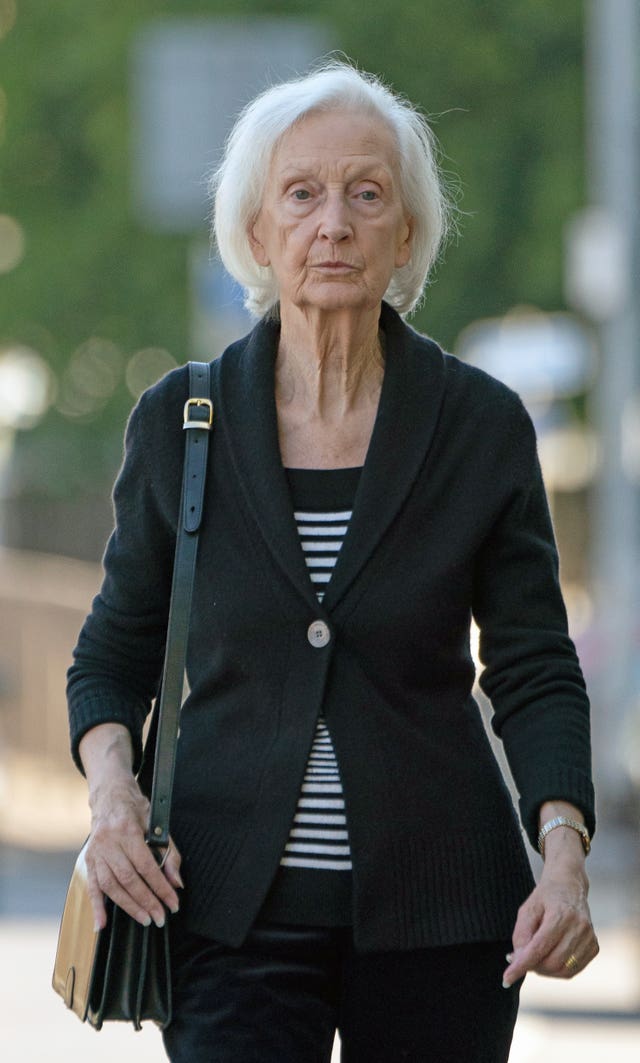Pensioner cleared of causing baby’s death by careless driving due to dementia
Jurors at Cambridge Crown Court found that Shelagh Robertson’s undiagnosed dementia had affected her driving.

A pensioner charged with causing a baby boy’s death through careless driving has been found not guilty after jurors found that her undiagnosed dementia had affected her.
Shelagh Robertson, 75, was driving home from a shopping trip to Tesco when she turned into the path of a van on the A10 at Waterbeach in Cambridgeshire on January 22 last year, Cambridge Crown Court heard.
The van collided with Ms Robertson’s car, forcing the van on to the pavement where it hit Rachael Thorold and her five-month-old son Louis Thorold, killing Louis and throwing Mrs Thorold into the air, causing her serious injuries.

Speaking outside court following the verdict, Louis’ father Chris described the incident as a “life sentence” for his family.
“Every moment we had with Louis was so special,” he said.
“We loved every single second. Louis knew only love and cuddles before he was killed by Shelagh Robertson.
“Louis’ future and all his potential stolen, a life sentence for us, his family, our community, and everyone who hears this story.”
Judge Mark Bishop told jurors that to return a special verdict of not guilty by reason of insanity they must be satisfied, on the balance of probabilities, Ms Robertson had dementia at the time and either did not know what she was doing or did not know that what she was doing was wrong.
He said that this “doesn’t include a momentary failure to concentrate”.
Jurors found Ms Robertson not guilty by reason of insanity on Friday following seven hours and three minutes of deliberations.
The defendant, who sat beside her solicitor and a family member in the well of the court, used a hearing loop to listen to the jury foreperson read out the verdict.
Ms Robertson, of Stables Yard, Waterbeach, appeared expressionless as the verdict was returned.
Louis’s parents Chris and Rachael Thorold, who sat in the public gallery, looked down at the floor, with Mr Thorold shaking his head.

James Leonard, defending, told the trial it was “obvious” Ms Robertson’s driving “fell below the standard of a reasonable and competent driver”.
But he said that Ms Robertson was “ill-equipped to negotiate” the junction due to her dementia, and she was unaware of this as she was undiagnosed at the time.
“She’s trying to be safe but she just doesn’t have the presence of mind to be safe,” Mr Leonard said.
Prosecutor David Matthew said in his closing speech: “There’s no doubt here that Shelagh Robertson is suffering from a form of dementia and was suffering from it in January 2021.”
He said that an MRI scan of Ms Robertson’s brain which showed shrinkage of a part of the brain associated with memory and language, taken in September or October of last year, is “strong evidence of that”.
But he raised the question of “where on the slope of dementia Shelagh Robertson was in January 2021”.

“It’s not just a question of whether someone has dementia, it’s a question of how bad is it,” he said.
Adam Zeman, professor of cognitive behavioural neurology at the University of Exeter, was instructed by defence lawyers to compile a report on Ms Robertson.
He told jurors that the defendant had “dementia caused most probably by Alzheimer’s disease in a slightly atypical presentation”.
Prof Zeman said Ms Robertson would have been at “high risk of becoming confused at that junction and one possible outcome of the confusion would be to look the wrong way”.
The expert witness added that Ms Robertson had “few close relatives” and her husband was “severely unwell”, which was significant as “it’s often the spouses who bring you along” for a dementia diagnosis.





